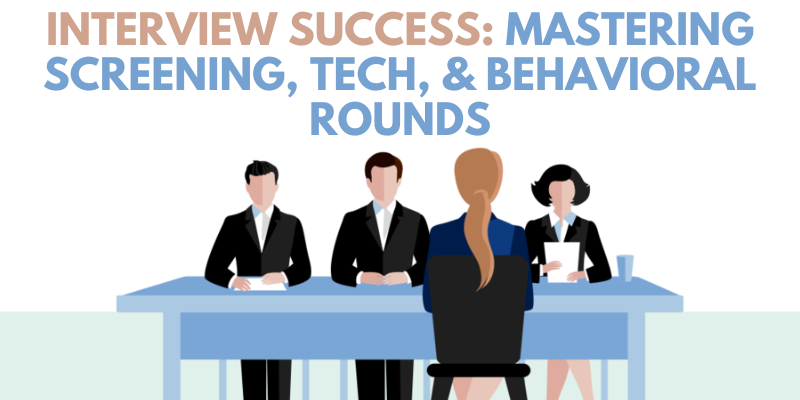The job interview process can be a nerve-wracking experience for many individuals seeking new career opportunities. As companies strive to find the perfect fit for their teams, they often conduct multiple rounds of interviews to assess candidates thoroughly. Each round serves a specific purpose, evaluating a candidate’s skills, knowledge, and personality. To increase your chances of success, it’s crucial to understand and master the various interview rounds. This article will explore effective techniques for excelling in screening, technical, and behavioural interviews.
The Screening Interview: Making a Memorable First Impression
The screening interview is usually the initial step in the hiring process of Freshers Jobs. It aims to narrow down the candidate pool by assessing qualifications, experience, and cultural fit. To leave a lasting impression during this round, follow these techniques:
Research the company
Gain a comprehensive understanding of the organization, its mission, values, and recent accomplishments. This knowledge will help you tailor your responses and demonstrate your genuine interest in the company.
Prepare concise answers
Anticipate common screening interview questions and practice succinctly articulating your qualifications, achievements, and career goals. Highlight relevant experiences that align with the company’s needs.
Showcase enthusiasm
Display your passion for the role and the company, showcasing your eagerness to contribute and learn. A positive attitude can significantly impact the interviewer’s perception of you and enhance your prospects at Hexaware Careers.
The Technical Interview: Demonstrating Your Expertise
Technical interviews are designed to evaluate your specific skills, knowledge, and problem-solving abilities related to the job. To excel in this round, consider the following techniques:
Review technical concepts
Identify the core competencies required for the position and review relevant technical concepts. Brush up on industry trends, methodologies, and tools commonly used in the field.
Practice coding and problem-solving
Be fully prepared to showcase your programming skills at Redington Careers by actively practicing coding exercises and solving technical problems. Familiarise yourself with common algorithms, data structures, and coding languages relevant to your domain.
Communicate your approach
During technical interviews, employers value your thought process. Explain your approach to problem-solving, even if you encounter difficulties. Effective communication demonstrates your ability to collaborate and adapt to challenges.
The Behavioral Interview
Demonstrating Your Soft Skills
Behavioural interviews focus on assessing your interpersonal skills, personality traits, and how you handle various work situations. To succeed in this round, follow these techniques:
Prepare concrete examples
Reflect on your past experiences and identify situations demonstrating your skills, such as leadership, teamwork, problem-solving, and adaptability. Craft concise, compelling stories that showcase your abilities.
Use the STAR method
Structure your responses using the Situation, Task, Action, Result (STAR) method. Clearly describe the situation, explain the task or challenge you faced, discuss your actions, and highlight the positive results you achieved.
Be authentic and personable
Employers seek candidates who fit well within their teams. Show your genuine self, be friendly, and engage in meaningful conversations. Maintain eye contact, listen actively, and demonstrate empathy during the interview.
Conclusion
Mastering different interview rounds is essential for increasing your chances of success in the job search process. By understanding the unique objectives of screening, technical, and behavioural interviews, you can effectively tailor your approach to each round. Research the company, showcase enthusiasm, demonstrate technical expertise, communicate your soft skills, and be authentic during the interview process. By employing these techniques, you will stand out among other candidates and position yourself for career advancement. Practice and preparation are key to mastering interviews and securing your dream job. Good luck!

